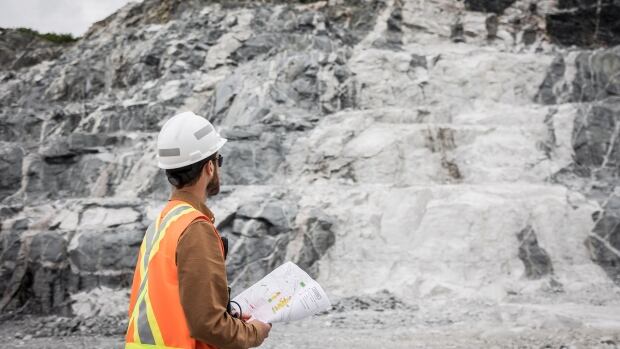
A new mine could position Quebec as a lithium leader, but its rocky past worries locals
CBC
In an expansive open-air pit 550 kilometres northwest of Montreal, 100-tonne trucks criss-cross the climbing roads, preparing for the mine to open.
The chalk-white veins of those rocks have metals inside, including one of the most sought-after minerals in the world: lithium, a key component of electric car batteries.
When production restarts at the La Corne, Que., lithium mine early next year, it is set to be one of the only functional lithium concentrate mines in North America and position Quebec as a Canadian lithium leader.
Sayona Quebec, which purchased the mine in 2021, has already hired about 80 full-time workers, and the mayor of the neighbouring municipality, Amos, says there will surely be secondary economic benefits for residents.
"As a Quebecer, I'm proud," Sayona Quebec CEO Guy Laliberté said. "Knowing that this lithium (will have been) produced with green energy, hydropower … in some very severe and strict environmental regulations."
But others are more skeptical. In the past 10 years, the lithium mine has changed owners four times, has been responsible for serious and damaging spills, and filed for creditor protection twice — despite a $110-million investment from the provincial government.
Meanwhile, environmental groups and members of the Long Point First Nation have spoken out about Sayona's other proposed lithium projects in the region, saying the projects could threaten the water, as well as the Anishinabeg way of life.
That's why some experts say that while extracting lithium is important, it shouldn't be thought of as a climate change magic bullet just because it powers the electric vehicle industry.
"There is a lot of harm associated with extraction, both for communities and for ecosystems," said Teresa Kramarz, a mining expert at the University of Toronto.
Canada doesn't currently produce lithium, but has about 2.5 per cent of the world's known lithium deposits.
That's a blip on the radar compared to lithium powerhouse countries such as Bolivia, Australia, Chile, and Argentina, while China controls most of the world's processing capability. Still, Canadian lawmakers have signalled that they're keen to mine what they can.
As consumers shift from gas cars, demand for lithium has outstripped supply. One expert's analysis says we need to add at least 300 more mines globally to meet current demand.
"We have lithium in Quebec, and it's important to take advantage of it," Quebec Premier François Legault told reporters in September.
But Olivier Pitre, director of SÉSAT, a group that monitors groundwater in Quebec's Abitibi-Témiscamingue region, says mining activity in the region could have an effect on some of North America's purest water.













